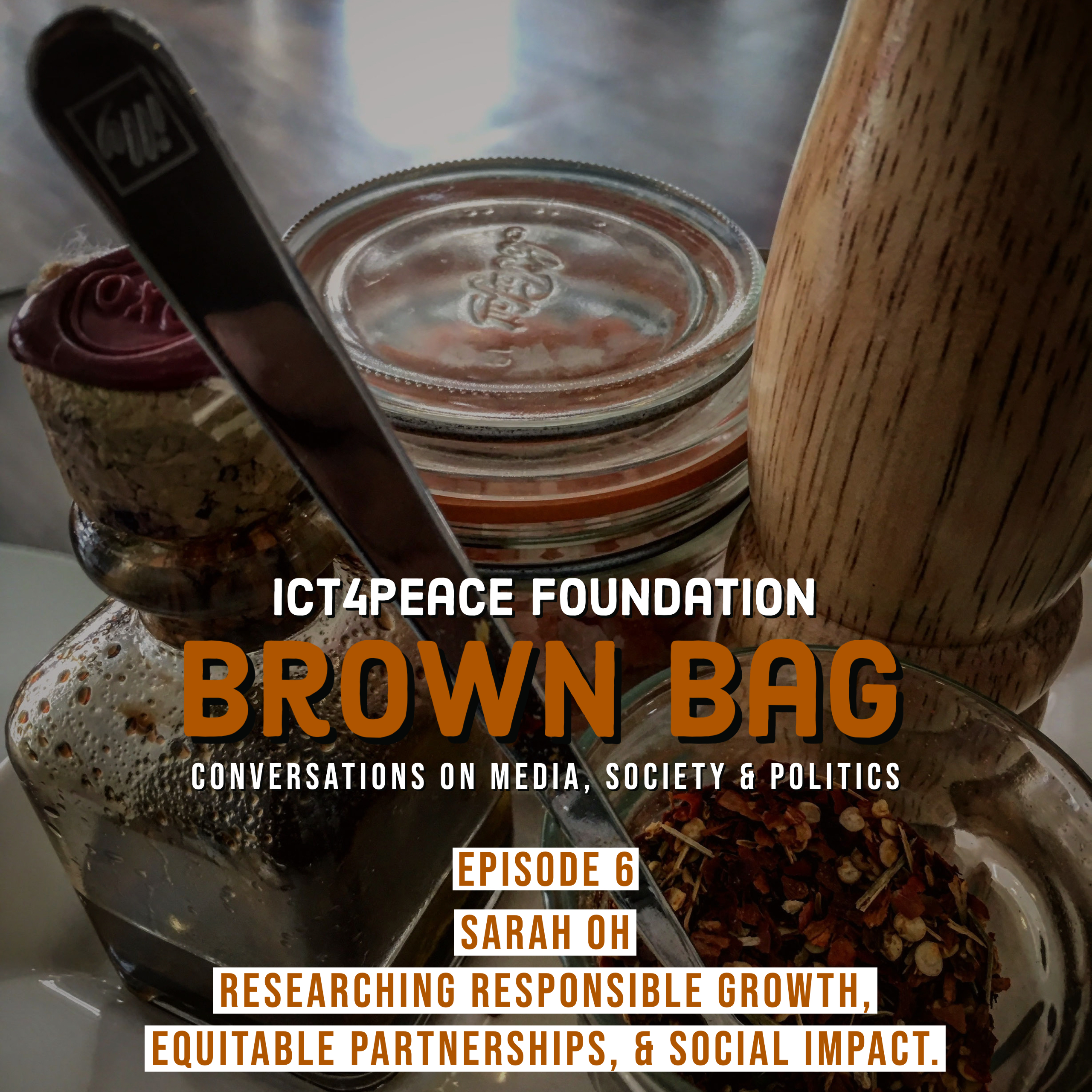ICT4Peace is delighted to release Episode 6 of Brown Bag, the ICT4Peace podcast series on social media, politics, democracy and society from a Global South perspective, hosted and produced by ICT4Peace Foundation’s Special Advisor, Dr Sanjana Hattotuwa.
In Episode 6, Hattotuwa speaks with Sarah Oh, who works with technology companies to launch new programmes focused on responsible growth, equitable partnerships, and social impact, with an emphasis on human rights.
Listen to the podcast on SoundCloud or use the embedded player below, which also lists previous episodes. Brown Bag is also on Spotify, Google Podcasts, Amazon Music and Apple Podcasts. This production of this podcast series is supported by the Daniel Gablinger Foundation.
Oh starts by talking about the ‘Global Majority’, as a term that better captures the majority of users on social media, and where they are located, in contra-distinction to the more often used term, Global South. She goes on to talk about the challenges around platform oversight, and the developments of (social media) product, and platform technologies that account for the varied experiences, and requisites across various geographies, contexts, and communities.
The conversation pivots to specifically focussing on Myanmar, and the role social media played in the significant socio-political unrest, violence, and ultimately, genocide. Oh talks about the emphasis on growth, and market capitalisation, in the context of offline developments, which online content informed, and helped shape. She goes on to reflect about the choices made by social media companies, considering what we now know happened in Myanmar, and elsewhere in the Global South.
Talking about the intersection of society, and technology, Oh responds to a question which asked her to think about how tuned into Global South realities Silicon Valley is, even considering degree to which they have got it repeatedly wrong, and at significant cost to the social, and democratic fabric of many countries. In her response, she talks about grounded design, and user-centric processes to help offset the violence arising from bad design.
Oh then talks about the challenges including translating concepts like hate speech, the taxonomisation, and categorisation of these concepts, the politics embedded in such processes around who gets to decide, and the incorporation of human rights into the business operations of social media platforms, as significant, and enduring. The conversation also focusses on India, and how under PM Modi, social media companies are struggling to accommodate spill-over effects of a growing democratic deficit, and rising autocracy, with online impacts including a significant rise in dangerous speech, consequent chilling-effects, and content violently targeting minorities including Muslims.
The conversation then talks about the outsized impact of platforms, and products designed in Silicon Valley, used around the world, including now in the strategic, sustained production, and propagation of hopelessness, harms, anger, and anxiety, to foment social unrest, and erode social cohesion. Oh talks about the vital importance of tackling these big issues, and wicked problems, with a long-term mindset, and at the structural or societal level.
Oh ends with giving listeners a capture of what she’s working on now, and why.

